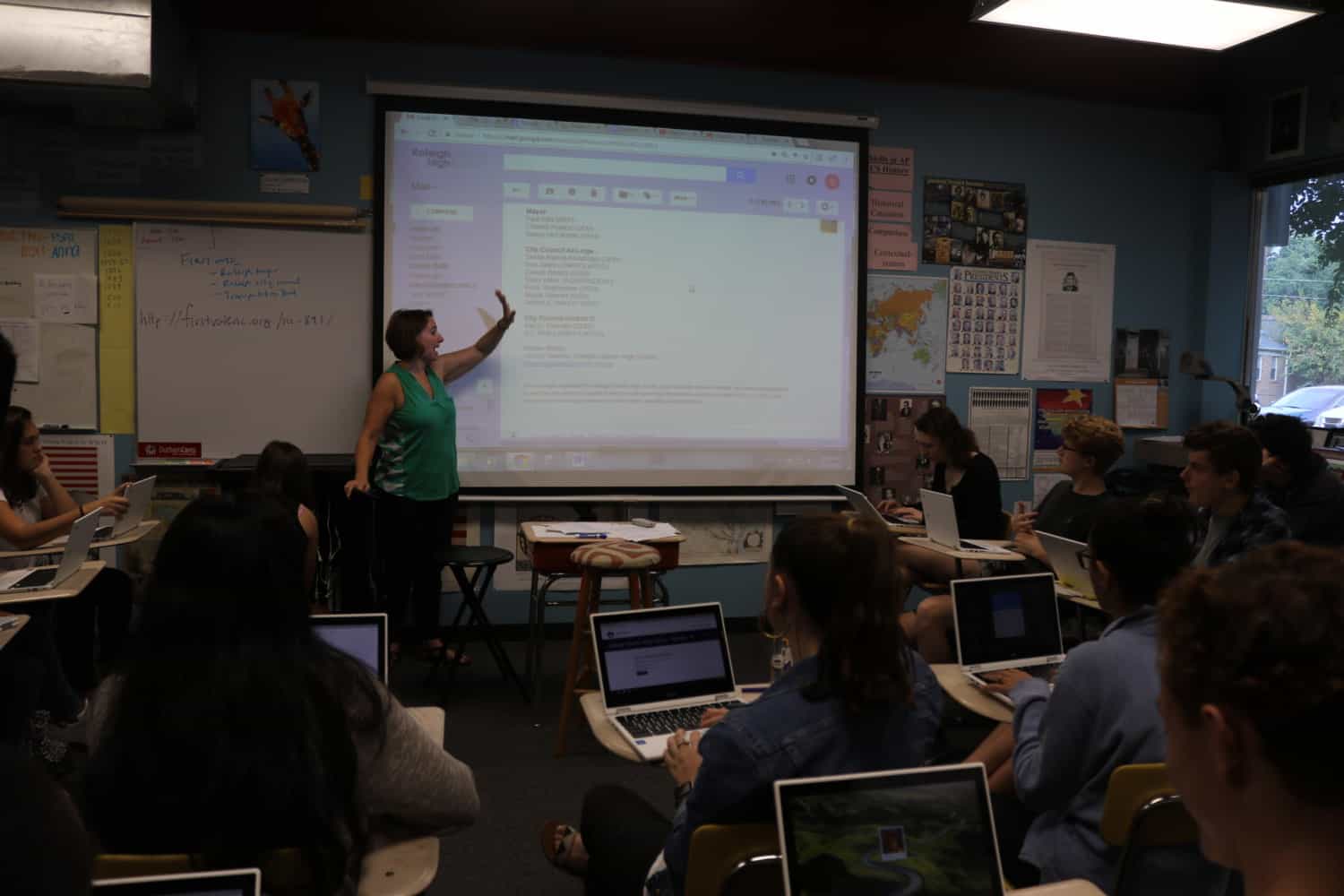For the past two and a half years, I have led and been led by cohorts of exceptional educators across the state as they become more engaged in systems change. I talk to them regularly, edit blog posts and op-eds on their ideas and stories, and engage in a feedback loop about what is and is not working in North Carolina classrooms.
In teachers, we are sitting on a goldmine of talent: They are adept at quick problem-solving. They take dry content and make it engaging for distracted minds. They navigate the politics of changing leadership and new policies. They form bonds and learning communities with co-workers they are distant from most of the day, and they work outside their contracted hours to meet the needs of their work environment and “clients.”
The problem? They are not provided the time or opportunity to lift their heads up from the task at hand and both contribute to systems-level improvements or receive quality learning that pushes their competencies forward. And, because of this, their talents become narrowly focused on their classroom and students–great for the students they teach, bad for our state’s ability to scale new ideas, encourage innovation, and solve complex problems.
When the teachers in Hope Street Group’s North Carolina Teacher Voice Network reach out to their individual networks to similarly engage in civic dialogue and systems level problem solving, I can hear the exhaustion in their colleagues’ responses. They want to know about their district’s upcoming School Board election; they want to better understand how assessments are created and provide input on changes; they want to discuss parent engagement strategies or how to create policies that increase equitable educational opportunities for all students. They want to reflect on professional learning they’ve received and how it can improve their instruction. But I ask you this: after you’ve worked non-stop for 6 or more hours in a room full of children in addition to the planning and follow up associated with that–what do you want to do?
In non-teacher roles, many of us have the luxury of time. You have been intensely working on a project for an hour: you take a step back and divert your attention elsewhere. Numerous studies and corporate newsblogs codify this: “The most productive employees [don’t] work full eight-hour days, and they took 17-minute breaks for every 52 minutes of work.” Admittedly, not every profession can accomplish this schedule. Doctors can’t do surgery in 52 minute blocks and police officers aren’t on 52 minute shifts. But, we have to also admit that employees in any profession need time to reflect, refocus, and reenergize in order to be at their most productive and contribute thoughtfully outside of the scope of their immediate work, and employers need to establish feedback loops that consider the existing responsibilities of their team members.
We need teachers to be at the forefront of change in education. We need them to be engaged community members at every level of the system. We need them to be constantly improving and adapting their instruction. But to do so, we need to do two things: make the provision of time a priority for educators and make their engagement accessible.
The provision of time could be made by disrupting the organizational model of schools, by creating new staffing strategies that elevate teachers to formal leadership roles, or by revisiting existing responsibilities and rectifying inefficiencies. Meetings that would benefit from teacher input should be scheduled outside of school hours and platforms like EdNC.org and its ReachNC project should be promoted across districts for easier educator access and contribution.
No matter how it is accomplished, however, we critically need to free up the talent that is intrinsic to teachers and leverage it for the greater good. Only by doing so will we uncage the power of teacher leadership and teacher voice for the benefit of students across our state.



